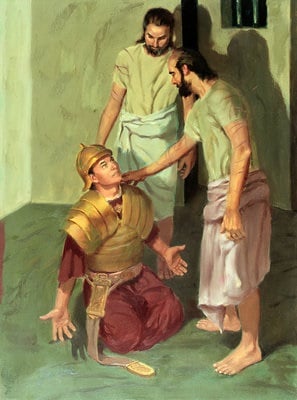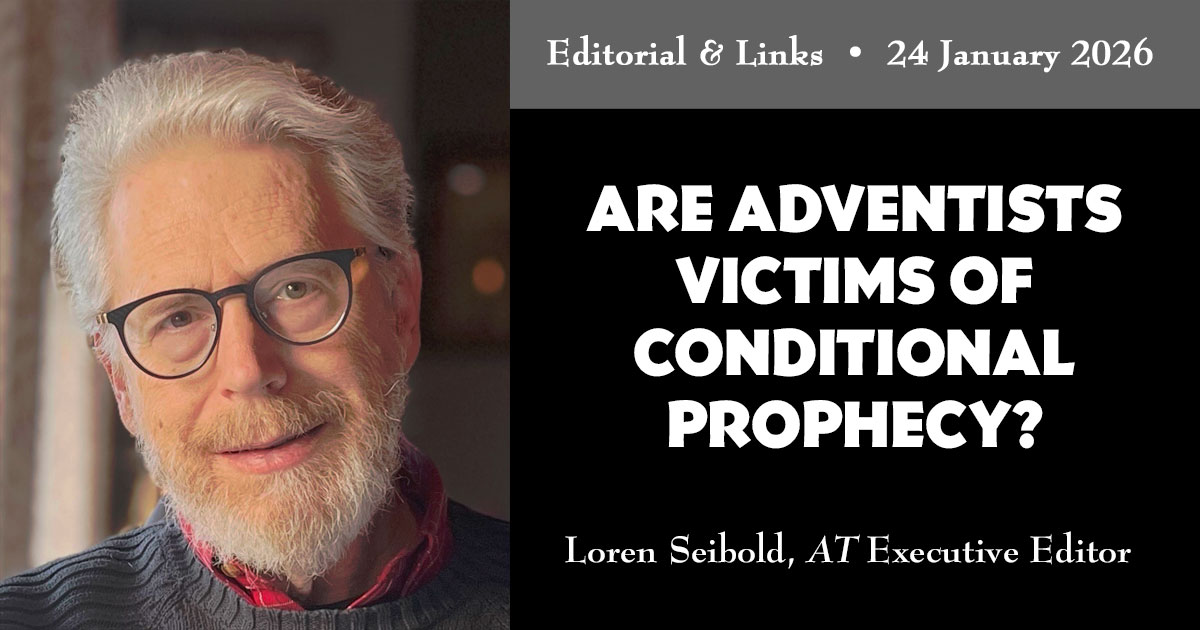It is time for You to act, O Lord, for they have regarded Your law as void. Psalm 119:126.
The Lord is soon to come. Wickedness and rebellion, violence and crime, are filling the world. The cries of the suffering and the oppressed rise to God for justice. In the place of being softened by the patience and forbearance of God, the wicked are growing stronger in stubborn rebellion. The time in which we live is one of marked depravity. Religious restraint is thrown off, and people reject the law of God as unworthy of their attention. A more than common contempt is placed upon this holy law.
A moment of respite has been graciously given us of God. Every power lent us of heaven is to be used in doing the work assigned us by the Lord for those who are perishing in ignorance. The warning message is to be sounded in all parts of the world. There must be no delay. The truth must be proclaimed in the dark places of the earth. Obstacles must be met and surmounted. A great work is to be done, and this work is entrusted to those who know the truth for this time.
Now is the time for us to lay hold of the arm of our strength. The prayer of David should be the prayer of pastors and laymen: “It is time for thee, Lord, to work: for they have made void thy law.” Let the servants of God weep between the porch and the altar, crying, “Spare thy people, O Lord, and give not Thine heritage to reproach.” God has always wrought in behalf of His truth. The designs of the wicked, the enemies of the church, are subject to His power and His overruling providence. He can move upon the hearts of statesmen; the wrath of the haters of His truth and His people can be turned aside, even as the waters of a river could be turned, if thus He ordered it.
Prayer moves the arm of Omnipotence. He who marshals the stars in order in the heavens, whose word controls the waves of the great deep—the same infinite Creator will work in behalf of His people if they will call upon Him in faith. He will restrain all the forces of darkness until the warning is given to the world, and all who will heed it are prepared for His coming.—The Review and Herald, December 14, 1905.
From the Heart p. 36
~~~~~~~~~~~~~~~~~~~~~~~~~~~~
Prayer Requests
—-Please pray for my sister who is in so much pain she just can barely function. Michael
—-My husband is having severe high blood pressure. Please pray that he won’t have a stroke or heart attack. A
—- I’d like to request a prayer for my dad who’s dying in the hospital. And for his girlfriend of thirty plus years, my pastor’s going up there to see them later today, and will you please pray that he’ll lead them to the Lord. Gina
~~~~~~~~~~~~~~~~~~~~~~~~~~~~~
Dear Friends,
Last week, I was listening to a man who had an interesting experience. He heard God speaking in his mind to go and talk with a woman that he saw in a store. Many times he hesitated, but eventually he obeyed. How glad he was that he did. This woman was going through a time of great trial and his kind words were just what she needed. He was able to minister to her and help her to realize that God loved her and had not forsaken her.
About ten years ago or so, Eileen was thankful she also listened to that still, small voice. She was getting ready to go to work, when she got this overwhelming feeling that taking her dog Murphy to work with her that day was not a good idea. (Eileen worked at a private nursing home and the ladies there loved that little dog.) At first, she dismissed the feeling and continued getting ready. That strong feeling persisted. Finally, she called her mother-in-law and asked her if she would like Murphy’s company for the day.
By the end of day, Eileen knew that God had directed her to keep Murphy away from work that day. It had been extremely hectic because one of the residents had to go to the hospital. Nurses and ambulance attendants had been going in and out much of the time, and Murphy would have been in the way. How thankful Eileen was that she had listened.
How good and kind our Heavenly Father is to direct us not only in the big things but also in the little things of life. He, Who knows the end from the beginning, is willing to help us in every aspect of our life. “Trust in the LORD with all thine heart; and lean not unto thine own understanding. In all thy ways acknowledge him, and he shall direct thy paths.” Pr 3:5, 6
Yet, is every impression or thought a guidance from God? No, sometimes thoughts and impressions come from our imaginings. “O LORD, I know that the way of man is not in himself: it is not in man that walketh to direct his steps.” Jer 10:23 Moreover, we have an adversary who is constantly trying to confuse us and lead us down the wrong path. The evil one also gives us impressions. How we need discernment to know who is speaking to us.
Only as we fortify our mind with the truths in God’s Holy Word can we knew the difference. Paul advises, “Study to show thyself approved unto God, a workman who needeth not to be ashamed rightly dividing the word of truth.” 2 Tim 2:15 As we study, we can claim the promise, “I will instruct thee and teach thee in the way which thou shalt go: I will guide thee with mine eye.” Ps 32:8
May we pray as did David, “Teach me, O LORD, the way of thy statutes; and I shall keep it unto the end.” Ps 119:33
Rose
Source: https://rosesdevotional.org/a-time-for-prevailing-prayer.html



